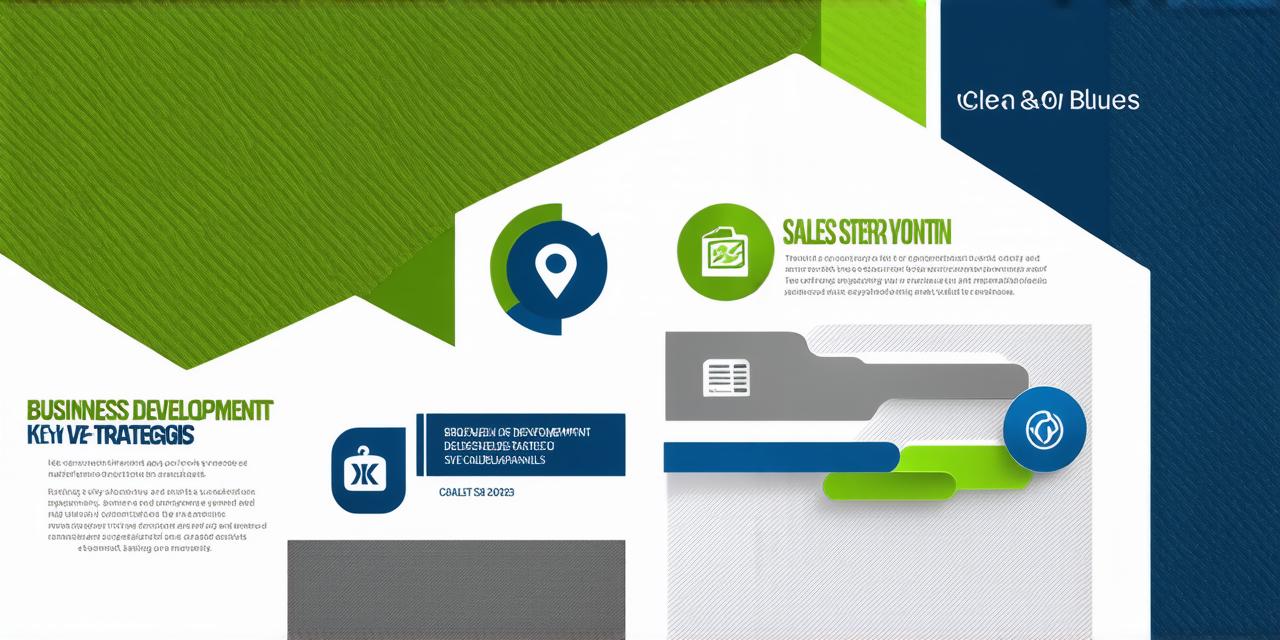Understanding Business Development
Business development involves identifying new opportunities for a company’s products or services. It is a proactive approach that requires building relationships, conducting market research, and developing partnerships to expand a company’s reach. Business development aims to attract new customers, enter new markets, and create new revenue streams.
Key Strategies for Business Development
- Networking: Building relationships with other professionals in the industry can lead to new business opportunities. Attend conferences, join industry groups, and connect with people on social media platforms to expand your network.
- Market Research: Conduct market research to identify gaps in the market and opportunities for growth. Analyze competitors, identify trends, and conduct surveys to gain insights into customer needs and preferences.
- Strategic Partnerships: Form strategic partnerships with complementary businesses to expand your reach and tap into their customer base. Identify potential partners based on shared goals, target markets, and mutual benefits.
- Content Marketing: Create valuable content that showcases your expertise and attracts potential customers. Develop a content marketing strategy that includes blog posts, whitepapers, case studies, and other types of content that resonate with your target audience.

Understanding Sales
Sales is the process of persuading potential customers to purchase a company’s products or services. It involves identifying potential clients, understanding their needs, and presenting solutions that meet those needs. Sales requires a strategic approach and often involves developing a sales plan, building relationships with clients, and overcoming objections.
Key Strategies for Sales
- Developing a Sales Plan: Create a sales plan that outlines your goals, target market, and tactics. This will help you stay focused and track your progress towards achieving your objectives.
- Building Relationships: Build strong relationships with your clients by listening to their needs, providing excellent customer service, and following up regularly. Maintain open communication channels, be responsive to their inquiries and concerns, and show genuine interest in their business success.
- Overcoming Objections: Anticipate objections and develop strategies to overcome them. Practice active listening, empathize with the client’s concerns, provide solutions that meet their needs, and be prepared to answer questions or provide additional information as needed.
- Product Differentiation: Differentiate your products or services from competitors by highlighting unique features, benefits, and case studies. Showcase your value proposition and demonstrate how your product or service can solve the client’s problems or meet their needs more effectively than your competitors.
The Importance of Business Development and Sales
Both business development and sales are critical for the growth and success of businesses. While they differ in their focus, they share a common goal – to attract new customers, generate revenue, and create value for the company and its stakeholders. By focusing on both business development and sales, businesses can expand their reach, tap into new markets, and increase revenue.
Case Study: HubSpot’s Success Story
HubSpot, a software company that provides marketing, sales, and customer service solutions, is an excellent example of how business development and sales can work together to drive growth. The company started out focusing on business development, building relationships with potential clients, and identifying new opportunities for growth. As the business grew, they shifted their focus to sales, developing a strategic sales plan and building strong relationships with customers. Today, HubSpot is one of the fastest-growing companies in the world, with a market capitalization of over $20 billion.
FAQs
1. What is the difference between business development and sales?
Business development involves identifying new opportunities for a company’s products or services, while sales is the process of persuading potential customers to purchase a product or service. Business development focuses on building relationships, conducting market research, and developing partnerships to expand a company’s reach, while sales aims to close deals and generate revenue.
